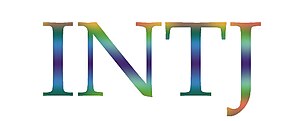A few of the best personal finance blogs have decided to post on a theme. It’s a personality type blog carnival.
After taking the Jung Typology Test, I discovered that I am an INTJ; a Rational Mastermind. Specifically I am I(78%) N(12%) T(75%) J(44%).
What does that mean, you ask?
It means that I am rare. Fewer than 3% of the population has my personality type, which is Introvert iNtuition Thinking Judgement, but the intuition is close to Sensing, making me almost an ISTJ, or a Guardian Inspector.
From Wikipedia:
- I – Introversion preferred to extraversion: INTJs tend to be quiet and reserved. They generally prefer interacting with a few close friends rather than a wide circle of acquaintances, and they expend energy in social situations (whereas extraverts gain energy).
- N – Intuition preferred to sensing: INTJs tend to be more abstract than concrete. They focus their attention on the big picture rather than the details and on future possibilities rather than immediate realities.
- T – Thinking preferred to feeling: INTJs tend to value objective criteria above personal preference. When making decisions they generally give more weight to logic than to social considerations.
- J – Judgment preferred to perception: INTJs tend to plan their activities and make decisions early. They derive a sense of control through predictability, which to perceptive types may seem limiting.
- S – Sensing preferred to intuition: ISTJs tend to be more concrete than abstract. They focus their attention on the details rather than the big picture, and on immediate realities rather than future possibilities.
To summarize the personality of a mastermind: We are big-picture planners. We see patterns other people miss and use that to solve complex puzzles and problems. It’s not possible to follow a thought through the head of a mastermind, because thinking comes with a ton of free association. We may be watching an episode of Spongebob, and something Patrick does will trigger a domino-effect of seemingly unrelated thoughts that will lead a conclusion, out of nowhere. Often, we aren’t aware of the process.
We don’t do crowds, at least, not often. Good conversation with good friends is better than a party full of people we barely know. Crowds are draining. A quiet night at home is a good night, but that’s not saying we-re shy. We just don’t enjoy keeping up with small talk and polite chatter. Get us on a topic we’re passionate about and you won’t shut us up. Get us in a group of people we care about, and we can be the life of the party.
As a group, we are ambitious and deliberate. We are capable of making firm decisions, confidently. Confidence is one of the hallmarks of a mastermind, but one I don’t have to the normal extreme.
We are obsessive focused. When we get set on a problem, we focus in a way that leaves other people stupefied. Time goes away. The rest of the world fades. You may have to shout to get our attention. Sometimes, our minds will drift in the middle of a conversation, and we’ll lose track of who’s saying what. It’s rude, but that doesn’t change the way we are wired.
We don’t do emotion. We are rational and get frustrated with people who make decisions based on emotion. This makes it hard to connect with others, but that’s okay, because it’s better to have a few extremely close friends than a crowd of mere acquaintances. Unfortunately, this can make relationships difficult, too. The benefit to dating or marrying an INTJ is that we carry our focus into relationships. We take our relationships seriously.
We are inwardly-focused, so we spend quite a bit of time examining ourselves. This can lead to a long series of self-improvement projects, but none get taken on as a mere fad. They are planned and dissected before even being mentioned to others, let alone undertaken.
We take criticism well, but if you can’t back up the critique with facts and reasoning, don’t bother. Rational, remember?
We are driven by a need to understand. Once we understand, a given project or line of thought may be abandoned. Until we understand, very little can shake our focus.
Self-promotion is difficult, since we don’t get into the heads of others well. They should be able to see the obvious benefits without being told, right?
Now, to cross a bit of the ISTJ into the mix.
An Inspector is duty bound and loyal, to an extreme. They are dependable workhorses. Under stress, they can get stuck on the things that could go wrong, which would explain why I miss out on the confidence brought by being a mastermind.
To summarize me:
- I am a planner.
- I am extremely focused, to the point of obsession.
- I am driven to learn new things, constantly. Few of those things are incorporated into my life, long-term.
- I don’t cheat. Taxes, games, relationships, etc.
- I am intensely loyal, but to very few people or causes. I don’t end relationships quickly or easily. That said, when it’s time for them to be over, I can break it off with little regret.
Security, improvement, planning, learning, thinking, loyalty, honesty, integrity.
That sounds about right.
Now you know a bit about how I tick. What’s your personality type?





